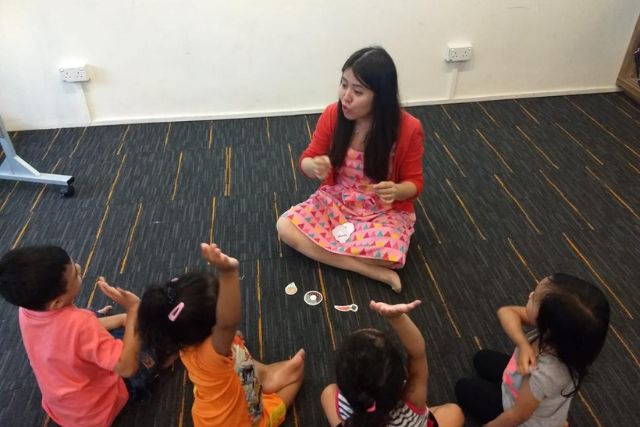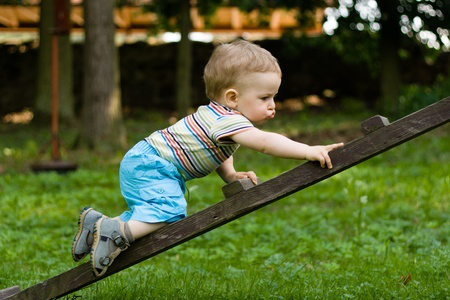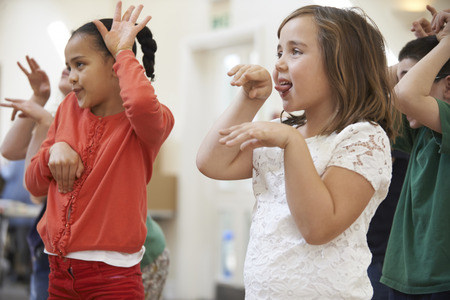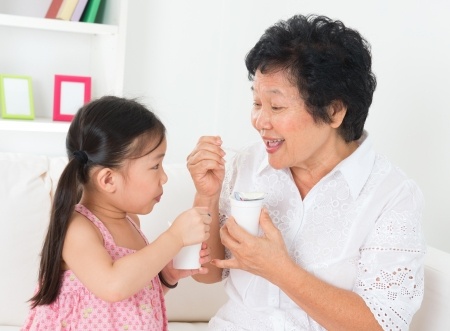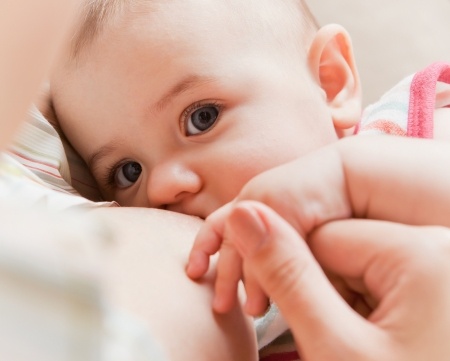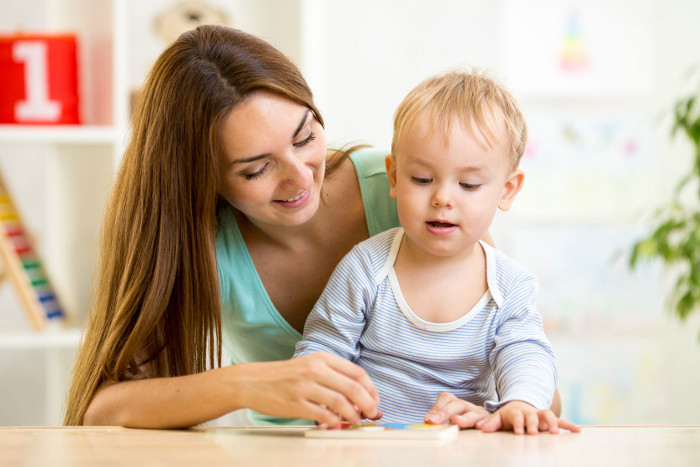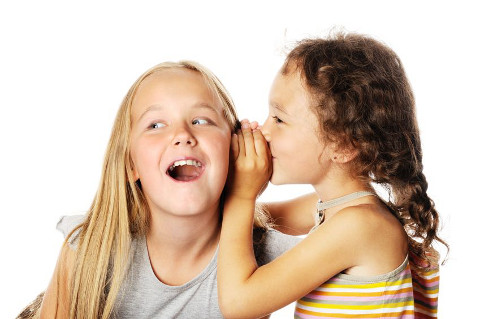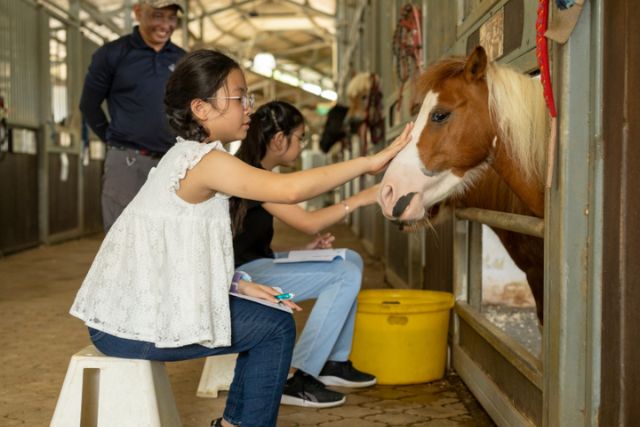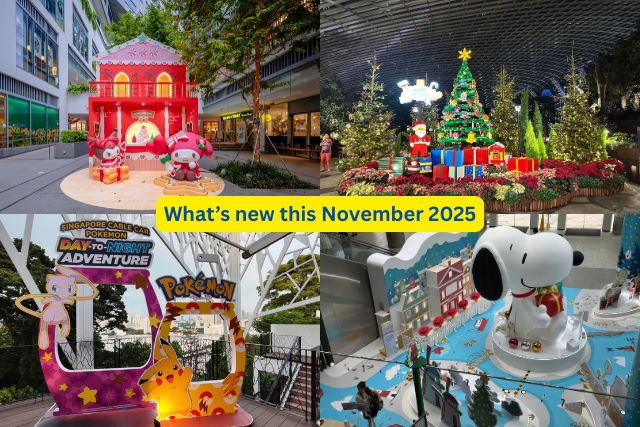Social-emotional skills are something children develop as they become conscious of the world around them. These skills allow children to develop loving relationships with others, providing them with a safe space to grow and form friendships, communicate emotions and deal with challenges.
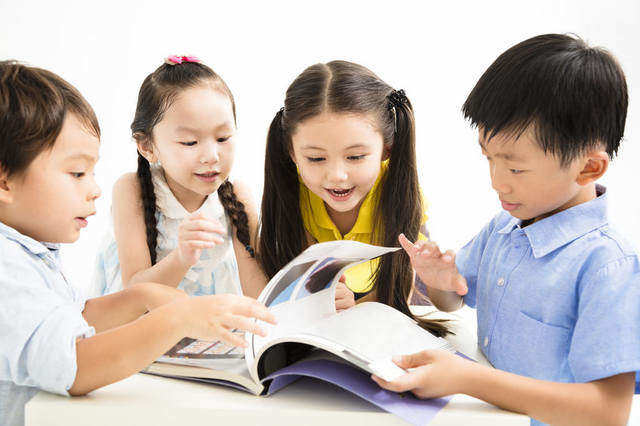
It also allows them to develop trust, empathy, compassion and a sense of right and wrong.
During the first few months of life, babies use vocalisations and body movements to begin building relationships. As they grow older, these relationships help children feel a sense of comfort, safety and confidence, in turn forming friendships, honing communication skills and the ability to deal with challenges.
However, not all children develop at the same pace. Kinderland shares some age-appropriate milestones you can expect your child to meet, and ways to develop their social-emotional growth and progress.
At the ages of 7 to 9 months:
At this age, children start developing a sense of awareness and begin to set social boundaries as well. They might display signs of stranger anxiety, becoming uncomfortable when they are not around familiar faces. To help them ease in, our infants and toddlers are exposed to playtime with peers from a young age.
This helps them to be more aware of their social-surroundings and defuses their fear to meet new faces. Teachers at Kinderland bond with the infants to provide a sense of security and early attachment. Responding swiftly to the basic needs of infants through a tender smile, a reassuring voice and gentle, secure hands help infants to feel secure when they come to the centre.
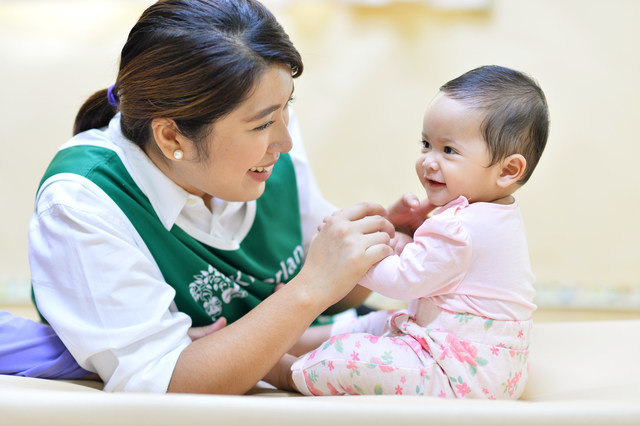
Younger infants at this age, used to being around different children and staff from infancy, will be more comfortable with new faces and be socially apt.
Research shows that infants who are secure are able to regulate emotions better, show more positive and fewer negative emotions and cope through problem-solving (Abraham & Kerns, 2013).
Parents and caregivers can start to cultivate positive habits in your child in a safe environment to assist their growth. When sending your child to infant care, this is the stage where separation anxiety may start to kick in, so they may fuss when it comes time to say goodbye but should calm down once they see a familiar caregiver’s face.
Infants have a built-in ability for empathy (Wittmer, 2009). At this age, infants can often tell when others are sad, happy, or angry by their tone of voice. Therefore, teachers can observe and notice how infants react to these emotions in adults.
Sensitivity to this social-emotional development in infants helps guide how adults should be aware of our facial and verbal emotions when caring for infants.
At the ages of 10 – 12 months:
You may realise your child will have a preference for certain things, and he or she is now capable of advanced interactions. For instance, engaging in exchanges with peers and act on their feelings more effectively.
In this period, it is crucial to teach your child right from wrong as this will most likely be their first time interacting independently. They will also be able to show signs of becoming more self-reliant as they are able to calm themselves down in emotionally stressful situations with the help of an adult.
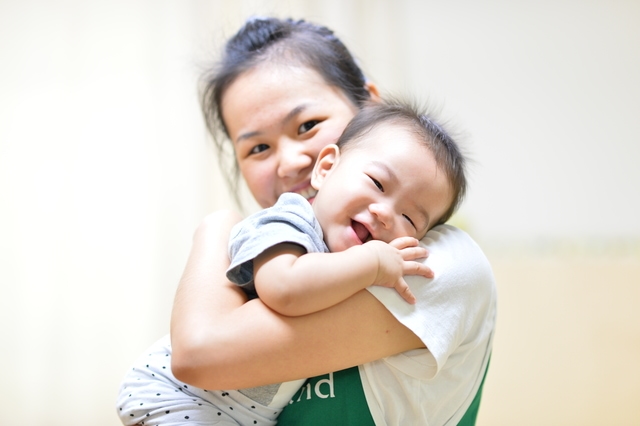
At Kinderland, teachers allow children to explore freely within a safe and well-observed environment to help with independence of exploration and self-reliance. For example, support bars are built in well-padded areas so that our growing infants are able to help themselves manage simple stands and walk.
Low tables and height-appropriate chairs also provide them with mobility and a socially suitable space for healthy meals and creative table activities.
When infants express their emotions of happiness, sadness, anger and surprise through gestures, sounds or facial expressions, parents and teachers can respond with the appropriate affirmation and support.
Adults can address their emotions positively by being present, demonstrating affection and understanding the infant’s needs intimately.
At the ages of 13 – 15 months:
Children at this stage would have developed a sense of curiosity as they interact with their environment, which could also mean that they will be more willing to be separated from their parents.
Kinderland’s infant care centres are decorated with teacher-made learning aids, children are invited to explore their surroundings through touch, sight and sounds.
⇒ Related Read: Why Babies Need Exploratory Play
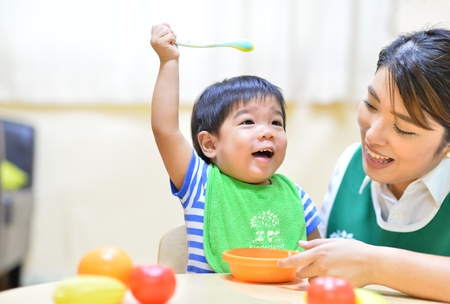
Activities to engage toddlers include parallel play at the dramatic corner, especially when they begin to imitate their older siblings or parents in role play by dressing up.
To encourage curiosity, children are guided and nurtured through child-led activities such as feeling the texture of spaghetti and creating art with water-filled balloons rather than confining them to a restrictive programme.
Most importantly, adults who understand the temperament traits of toddlers will be able to guide and develop them more effectively. These temperament styles cluster into three major patterns, namely easy going/ flexible; fearful/ shy; and impulsive/ intense/ feisty.
Positive parenting and responsive caregiving can positively affect children’s temperament with their supportive interactions, allowing children to thrive.
⇒ Related Read: The Value of Partnership in Parenting
When teachers in Kinderland are sensitive to toddlers’ cues in caring ways, they would enjoy the interactions in the centre and therefore be more self-regulated, less anxious and exhibit fewer behaviour problems (Warren & Simmens, 2005).
By Charlotte Wong, Infant Care Expert at Kinderland.
* * * * *
Stay in touch! Subscribe to our Telegram here for all our latest updates.
Looking for an Infant Care? Remember to check out our Best Infant Care Singapore compilation.













